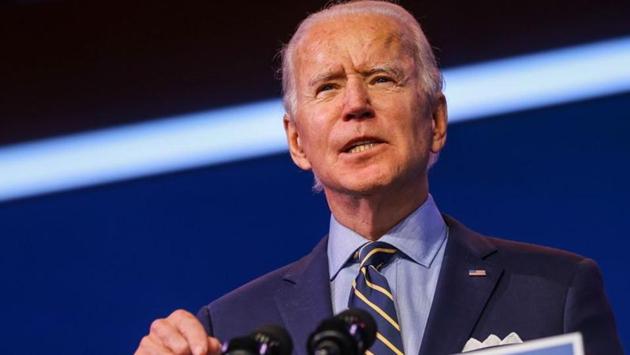Biden slams Chinese abuses, stresses security and prosperity in Indo-Pacific
Biden’s remarks on China, which will be scrutinised closely both at home in the US and abroad in India, Japan and Australia for clarity on how he will run this most crucial relationship, came after a meeting with his team of foreign policy and national security nominees and officials of his transition team.
US President-elect Joe Biden on Monday slammed China once again for “abuses” on trade, technology and human rights and said America can best pursue its goals relative to Beijing, which include “security and prosperity in the Indo-Pacific region” when it is “flanked” by like-minded partners and allies.

He reiterated his plans to pivot away from outgoing President Donald Trump’s unilateral America First strategy and focus instead on “rebuilding our alliances to close ranks with our partners and bring to bear the full benefits of our shared strength for the American people”.
Biden’s remarks on China, which will be scrutinised closely both at home in the US and abroad in India, Japan and Australia for clarity on how he will run this most crucial relationship, came after a meeting with his team of foreign policy and national security nominees and officials of his transition team.
“(As) we compete with China and hold China’s government accountable for its abuses on trade, technology, human rights, and other fronts, our position will be much stronger when we build coalitions of like-minded partners and allies to make common cause with us in defence of our shared interests and values,” the president-elect said.
He added, “On any issue that matters to the US-China relationship — from pursuing a foreign policy for the middle class, including a trade and economic agenda that protects American workers, our intellectual property, and the environment — to ensuring security and prosperity in the Indo-Pacific region, to championing human rights — we are stronger and more effective when we are flanked by nations that share our vision for the future of our world.”
The incoming president has spoken before of China’s abusive trade practices — in an interview to The New York Times — in which he indicated he will keep Trump’s restrictive tariffs in place for now. He intends to seek “leverage” in the relationship first by ramping up American economy.
Biden has also triggered nervousness among some China watchers who fear he may opt for a conciliatory approach that could encourage China to step up its expansionism, as seen widely in the South China Sea and most recently along the border with India, and in its relationship with Australia.
Biden’s use of the phrase “Asia-Pacific” in the past has been a cause for concern, because China prefers it to “Indo-Pacific”. Global Times, the state-controlled Chinese media outlet, said recently, “‘Asia-Pacific’ involves economic and cooperative connotations, while the term ‘Indo-Pacific’ is directly associated with geopolitical competition and alliance confrontation. The publication went on to call, in the same editorial piece, for Biden to abandon Indo-Pacific for Asia-Pacific.
Biden has indeed used the term “Asia-Pacific” a few times recently after election but he has also gone with “Indo-Pacific”. Brahma Chellaney, an Indian strategic analyst, has found it more disconcerting, as he wrote in The Japan Times recently, that Biden has switched from “Free and Open Indo-Pacific”, a strategic construct coined by Japan’s former prime minister Shinzo Abe and adopted by many countries including India since, to an undefined and unspecified “Secure and Prosperous Indo-Pacific (or variations of it)”.
Richard Fontaine, a former Bush administration diplomat who now is CEO of the Center for New American Security, an independent and bipartisan think-tank, said the president-elect’s use of the term Indo-Pacific “was welcome” but “more striking was his calling out Beijing for tech abuses, and his framing the need to cooperate with partners as a necessary element of a competitive China strategy.”
He added: “(It) sends a message, I think, that the new administration will be quite clear eyed about the China challenge.” Fontaine was a foreign policy adviser to late Senator John McCain, the widely respected Republican who ran for president and lost to Barack Obama, served in the state department in the administration of Republican president George W Bush.



